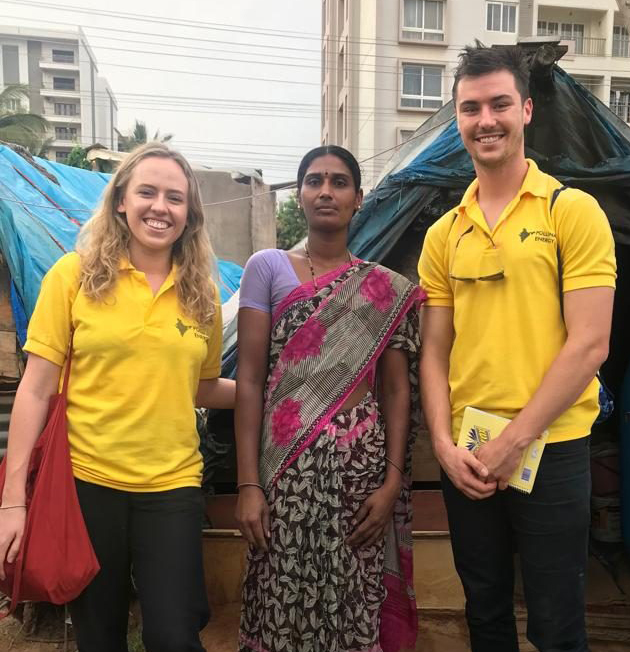Understanding the water lifecycle to improve community well-being in India
AECOM’s Australia and New Zealand partners with Pollinate Group to support employees wanting to take time to #GiveBack. This year, five employees participated on the 50th Professional Fellowship Program. As they return from their journeys, we’re following their stories through the #AECOMBlueprint blog series. This is a part of blog series that chronicles employees’ work through Pollinate Energy’s Professionals Fellowship Program over the last few weeks.
My first few days in Bangalore were spent acclimating and familiarizing myself with the hustle and bustle of this vibrant city and the cheerful and motivated group of fellows with whom I’m sharing the experience of Pollinate Group’s 50th fellowship program.
By Wednesday, May 23, we had advanced our understanding of Pollinate’s operations and the nuance behind its mission: “To empower women to lead their communities out of poverty.”
It was now time to get going on our project briefs — the main benefit that we are to provide to Pollinate Group during our fellowship. Our AECOM team are spread across the four projects:
Me (Gareth): Tam Ras Water purifier (a new water-treatment product developed in Bangalore)
Ed: Cashless transactions — mobile money
Juliette and Sam: Poverty Index
Suzanne: Data Validation Study — Salesforce
I was thanking my lucky stars that I got my first choice in the water-purification project. Why? Because poor-quality drinking water is the source of many illnesses and sometimes death, particularly in children under five years old. In addition, much of my time working for AECOM has been spent under the stewardship of our ANZ Technical Director for Water Supply and Wastewater Treatment, Peter Hillis, so I felt I could make more impact through this project!
The self-defined problem statement of our project is: “How might we understand the water life cycle of our community members to improve their well-being?”

This will involve an options assessment of the Tam Ras purifier and other water-treatment products against varying needs identified across the slum communities of Bangalore.
We’re still fine-tuning our approach based on what is realistically achievable in our community dealings — these will form the basis for understanding the needs of the communities Pollinate Group helps. The overwhelming sentiment from our visits (we have visited two communities at time of writing) is the friendliness of the people, particularly the kids. Most of the families would best be described as economic migrants coming from rural regions for better work opportunities due to the growth of Bangalore and the drought in their home communities, which has been hampering their ability to make a living.
Thus far, developing our survey has been our priority. We have spent some painstaking hours writing our survey questions, which must maintain their precision through translation into the local dialect(s), mostly Kannada, but some Hindi. We have some local fellows to thank for doing an amazing job in this department — they’re also great people! Today, we piloted our survey in a particularly urban community with success — vindicating our back and forth in developing our questions.
Stay tuned for what happens next. My second blog will be published soon.






